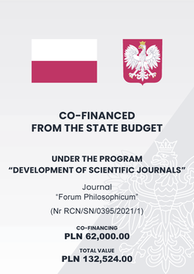- Home »
- Issues »
- 21/1 - Spring 2016 »
- Articles »
Historicity and Christian Life-Experience in the Early Philosophy of Martin Heidegger
Abstract
In his early Freiburg lectures on the phenomenology of religious life, published as his Phenomenology of Religious Life, Heidegger sought to interpret the Christian life in phenomenological terms, while also discussing the question of whether Christianity should be construed as historically defined. Heidegger thus connected the philosophical discussion of religion as a phenomenon with the character of the religious life taken in the context of factical life. According to Heidegger, every philosophical question originates from the latter, which determines such questions pre-theoretically, while the tradition of early Christianity can also only be understood historically in such terms. More specifically, he holds that the historical phenomenon of religious life as it relates to early Christianity, inasmuch as it undergirds our conception of the religious phenomenon per se, reveals the essential connection between factical life and religious life. In this way, the conception of religion that Heidegger establishes through his analyses of Paul’s Epistles takes on both theological and philosophical ramifications. Moreover, the historicity of factical life finds its fulfillment in our comprehension of the primordial form of Christianity as our very own historical a priori, determined by our own factical situation. Hence, historicity and factical life belong together within the situation that makes up the foundation of the religious life.
Keywords
Cite this article
Jani, Anna. „Historicity and Christian Life-Experience in the Early Philosophy of Martin Heidegger.” Forum Philosophicum 21, no. 1 (2016): 29–41. doi:10.5840/forphil20162113.
Bibliography
Barash, Jeffrey Andrew. Martin Heidegger and the Problem of Historical Meaning. 2nd revised edition. New York: Fordham University Press, 2003. Capelle, Philippe. “ ‘Katholizismus,’ ‘Protestantismus,’ ‘Christentum’ und ‘Religion’ im Denken Martin Heideggers: Tragweite und Abgrenzungen.” In Heidegger und die Anfänge seines Denkens, edited by Alfred Denker, Hans-Helmut Gander and Holger Zaborowski, 346–71. Heidegger-Jahrbuch, vol. 1. Freiburg: Alber, 2004. Denker, Alfred, Hans-Helmuth Gander and Holger Zaborowski, eds. Heidegger und die Anfänge seines Denkens. Heidegger-Jahrbuch, vol. 1. Freiburg: Alber, 2004. Fehér, István M. “Religion, Theology, and Philosophy on the Way to Being and Time: Heidegger, the Hermeneutical, the Factical, and the Historical with Respect to Dilthey and Early Christianity.” Research in Phenomenology 39, no. 1 (2009): 99–131. doi:10.1163/156916408X389659. Heidegger, Martin. The Basic Problems of Phenomenology. Translated by Albert Hofstadter. Bloomington: Indiana University Press, 1982. Heidegger, Martin. Gesamtausgabe. Vols 1–97. Frankfurt am Main: Klostermann, 1975–2015. Heidegger, Martin. The Phenomenology of Religious Life. Translated by Matthias Fritsch and Jennifer Anna Gosetti-Ferencei. Bloomington: Indiana University Press 2010. Heidegger, Martin. Grundprobleme der Phänomenologie. Gesamtausgabe 58. Edited by Hans-Helmuth Gander. Frankfurt am Main: Klostermann, 2010. Heidegger, Martin. Zur Bestimmung der Philosophie. Gesamtausgabe 56/57. Edited by Bernd Heimbüchel. Frankfurt am Main: Klostermann, 1999. Heidegger, Martin. Phänomenologie des Religiösen Lebens. Gesamtausgabe 60. Edited by Matthias Jung, Thomas Regehly and Claudius Strube. Frankfurt am Main: Klostermann, 1995. Heidegger, Martin. Towards the Definition of Philosophy. Translated by Ted Sadler. London: Continuum, 2002. Kisiel, Theodore. “Die formale Anzeige: Die methodische Geheimwaffe des frühen Heideggers.” In Heidegger—neu gelesen, edited by Markus Happel, 22–40. Würzburg: Königshausen and Neumann, 1997. Kisiel, Theodore. “Heidegger (1920–21) on Becoming a Christian: A Conceptual Picture Show.” In Reading Heidegger from the Start. Essays in His Earliest Thoughts, edited by Theodore Kisiel and John van Buren, 175–94. Albany, NY: State University of New York Press, 1994. Kisiel, Theodore. “The Religion Courses (1920–21).” In The Genesis of Heidegger’s “Being and Time,” 149–220. Berkeley: University of California Press 1993. Radbruch, Gustav. “Über Religionsphilosophie des Rechts.” In Religionsphilosophie der Kultur. Zwei Entwürfe, edited by Gustav Radbruch and Paul Tillich, 9–25. Philosophische Vorträge, vol 24. Berlin: Reuther and Reichard, 1919. Radbruch, Gustav, and Paul Tillich. Religionsphilosophie der Kultur. Zwei Entwürfe. Philosophische Vorträge, vol 24. Berlin: Reuther and Reichard, 1919. Schaber, Johannes. “Martin Heideggers ‘Herkunft’ im Spiegel der Theologie- und Kirchengeschichte des 19. und beginnenden 20. Jahrhunderts.” In Heidegger und die Anfänge seines Denkens, edited by Alfred Denker, Hans-Helmut Gander and Holger Zaborowski, 159–84. Heidegger-Jahrbuch, vol. 1. Freiburg: Alber, 2004. Tillich, Paul. “Über die Idee einer Theologie der Kultur.” In Religionsphilosophie der Kultur. Zwei Entwürfe, edited by Gustav Radbruch and Paul Tillich, 27–52. Philosophische Vorträge, vol 24. Berlin: Reuther and Reichard, 1919. Zaborowski, Holger. “ ‘Herkunft aber bleibt stets Zukunft’: Anmerkungen zur religiösen und theologischen Dimension des Denkweges Martin Heideggers bis 1919.” In Heidegger und die Anfänge seines Denkens, edited by Alfred Denker, Hans-Helmut Gander and Holger Zaborowski, 123–58. Heidegger-Jahrbuch, vol. 1. Freiburg: Alber, 2004.




